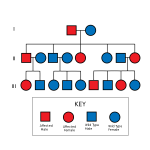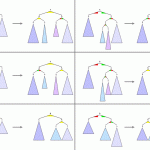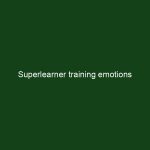Some of our students are extremely driven and focused. Generally these are excellent qualities for superlearner. Unfortunately some of the playful aspects of marker creation require “letting go”. You cannot afford perfectionism when you read at 1000wpm. You should not remake markers when you use high-level visualization or “cartoon” method. You do need crazy stunts …
Memorizing music
Many of our students ask how to memorize music. I am not an expert in this area. Once I produced a disc with jazz songs I wrote, but this is the closest I got to working with music. So I made a short research into what other people suggest. As everybody else I suggest to …
Synesthesia
The subject of synesthesia [when various senses “leak” into each other] was discussed several times during last month. First of all visit this site to learn more about synesthesia. Synesthesia naturally occurs in one out of 2000 people. If you have synestesia you can learn to do this. Moreover you could encode music, taste or …
Creating and using stylized markers
This is a basic and deep post that could be added to the course. It requires a bit more time and effort than a regular post on this site. I do suggest to visit all the links within and think about integrating it in your superlearning skillset. During the course we teach our students to …
Taking notes
Taking notes when learning is a very basic technique. There is a consensus that some notes should be taken be taken, yet it is not fully clear what notes should be taken and why. Notetaking for reviewing the content Occasionally we need to take note as the only/the best way to remember the content for …
Remembering multiple objects
One of the key exercises in making markers is remembering multiple objects. We have several ways of representing the object that need to be remembered and several strategies to address the memorization task. The task is very similar to remembering several markers scattered across multiple unrelated sources. The subject is being addressed in various forms …
Does superlearning cure ADD/ADHD/dyslexia?
We have long ago discovered anecdotal evidence that our methodology REALLY helps he people who have learning disabilities. Some of our students suffered dyslexia and using mental markers jumped from 20wpm to 1200wpm. Other students had trouble focusing on the text and were “cured” by the joyful gamification of speedreading. Even the students with brain …
Continue reading “Does superlearning cure ADD/ADHD/dyslexia?”
Subjects to read about
Just like you have training schedule, you could have reading schedule. Below are some posts from this blog you could read… Week Subject Suggested links 1 Superlearner Set your goals, No excuses, Get into “flow”, Change your life, Experience growth, Superlearn with others, Start visualizing 2 Visual markers Make markers fun, Use markers everywhere, Even …
Rebalancing life and work
We all want to live happily and yet to achieve something in our life. This is called work-life-balance. Here is my personal experience from the last several months. One of the issues that I want to focus on is finding again the balance between work and life. First of all: why did I loose the …
Superlearner training emotions
When training superlearning abilities the students are exposed to wide range of emotions and their mood may go back and forth, like this: Week 1 +++ Being superlearner is so cool! I could read most books in an hour or two, full harry potter collection in 12 hours! – But the training looks kind of …











